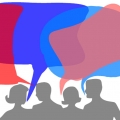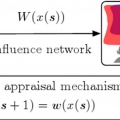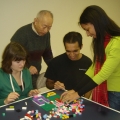We view teams as semantically-labeled, multilevel networks with attributes on nodes, edges, and subgroups. Through experiments for validation, we develop models of team performance: both statistical models using networks and fine-grain models of information flows. We then examine the relationship between influence networks and collective intelligence on task performance, as we consider the robustness and optimization of teams.



